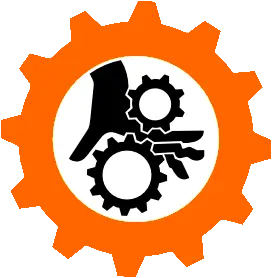the writer Nina Illingworth, whose work has been a constant source of inspiration, posted this excellent analysis of the reality of the AI bubble on Mastodon (featuring a shout-out to the recent articles on the subject from Amy Castor and @dgerard@awful.systems):
Naw, I figured it out; they absolutely don’t care if AI doesn’t work.
They really don’t. They’re pot-committed; these dudes aren’t tech pioneers, they’re money muppets playing the bubble game. They are invested in increasing the valuation of their investments and cashing out, it’s literally a massive scam. Reading a bunch of stuff by Amy Castor and David Gerard finally got me there in terms of understanding it’s not real and they don’t care. From there it was pretty easy to apply a historical analysis of the last 10 bubbles, who profited, at which point in the cycle, and where the real money was made.
The plan is more or less to foist AI on establishment actors who don’t know their ass from their elbow, causing investment valuations to soar, and then cash the fuck out before anyone really realizes it’s total gibberish and unlikely to get better at the rate and speed they were promised.
Particularly in the media, it’s all about adoption and cashing out, not actually replacing media. Nobody making decisions and investments here, particularly wants an informed populace, after all.
the linked mastodon thread also has a very interesting post from an AI skeptic who used to work at Microsoft and seems to have gotten laid off for their skepticism


Hilarious.
Only five years ago no one in the computer science industry would have taken a bet that AI would be able to explain why a joke was funny or perform creative tasks.
Today that’s become so normalized that people are calling things thought to be literally impossible a speculative bubble because advancement that surprised everyone in the industry initially and then again with the next model a year later hasn’t moved fast enough?
The industry is still learning how to even use the tech.
This is like TV being invented in 1927 and then people in 1930 saying that it’s a bubble because it hasn’t grown as fast as they expected it to.
Did OP consider the work going on at literally every single tech college’s VC groups in optoelectronic neural networks and how that’s going to impact decoupling AI training and operation from Moore’s Law? I’m guessing no.
Near-perfect analysis, eh? By someone who read and regurgitated analysis by a journalist who writes for a living and may just have an inherent bias towards evaluating information on the future prospects of a technology positioned to replace writers?
We haven’t even had a public release of multimodal models yet.
This is about as near perfect of an analysis as smearing paint on oneself and rolling down a canvas on a hill.
That’s the exact opposite of a bubble, then. A bubble is when the valuation of some thing grows much faster than the utility it provides.
Yea sure maybe we’re still in the early stages with this stuff. We have gotten quite a bit further from back when the funny neural network was seeing and generating dog noses everywhere.
The reason it’s a bubble is because hypemongers like yourself are treating this tech like a literal miracle and serial grifters shoehorning it into everything like it’s the new money. Who wants shoelaces when you can have AI shoelaces, the shoelaces with AI! Formerly known as the blockchain shoelaces.
you fucking idiot
holy christ shut the fuck up
uhh did OP consider my hopes and dreams, powered by the happiness of literally every single American child? im guessing no. what a buffoon
Iirc it still couldn’t do that, if you create variants of jokes it patterns matches it to the OG of the joke and fails.
Euh what, various creative tasks have been done by AI for a while now. Deepdream is almost a decade old now, and before that where were all kinds of procedural generation tools etc etc. Which could do the same as now, create a very limited set of creative things out of previous data. Same as AI now. This chatgpt cannot create a truly unique new sentence for example (A thing any of us here could easily do).
What ?
Of course it can, it’s randomly generating sentences. It’s probably better than humans at that. If you want more randomness at the cost of text coherence just increase the temperature.
you mean like a Markov chain?
These models are Markov chains yes. But many things are Markov chains, I’m not sure that describing these as Markov chains helps gain understanding.
The way these models generate text is iterative. They do it word by word. Every time they need to generate a word they will randomly select one from their vocabulary. The trick to generating coherent text is that different words are more likely to happen depending on the previous words.
For example for the sentence “that is a huge grey” the word elephant is more likely than flamingo.
The temperature is the way you select your word. If it is low you will always select the most likely word. Increasing the temperature will make the random choice more random giving each word a more equal chance.
Seeing as these models function randomly there is nothing preventing them from producing unique text. After all, something like jsbHsbe d dhebsUd is unique but not very interesting.
I don’t get particularly excited for algorithms from 1972 that come included with emacs, alongside Tetris and a janky text adventure but that is indeed the algorithm you’re rather excitedly describing
snore I guess
People tried this and it just generated the same chatgpt trite.
You have the insider clout of a 15 year old with a search engine
my god
Have a browse through some threads on this instance before you talk about what the “computer science industry” was thinking 5 years ago as if this is a group of infants.
If you feel open to it, consider why people who obviously enjoy computing, and know a lot about it, don’t share your enthusiasm for a particular group of tech products. Find the factors that make these things different.
You might still disagree, you might change your mind. Whatever the fuck happens, you’ll write more compelling posts than whatever the fuck this is.
You might even provoke constructive, grown-up, discussions.
Just like blockchain, right? That killer app’s coming any day now!